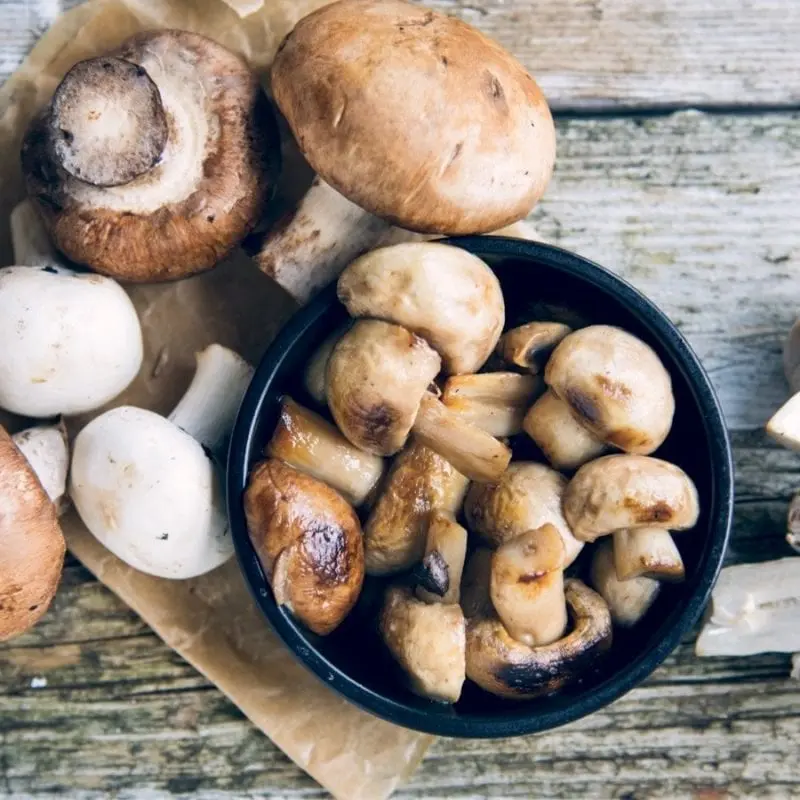List of Mushrooms
Mushroom Articles
About Mushrooms

For many, it has already become a tradition – to pick mushrooms in a green forest, peel them together and enjoy fragrant food in the evening, make preparations for the winter. When consumed correctly, mushrooms are useful, but there is harm from them if you do not follow simple rules.
The benefits of mushrooms
Mushrooms belong to a separate kingdom – they are a completely different form of life than plants. Mushrooms combine the properties of flora and fauna, which could not but affect their composition.
This product was eaten at the dawn of civilization for various purposes. After all, there are not only edible mushrooms, but also poisonous ones. They were used by shamans to enter a special state in rituals. The ability to distinguish edible from poisonous mushrooms has always been appreciated, and is still no less important for amateur mushroom pickers.
This product consists almost entirely of water, so when drying the mushrooms take up very little space and weigh a little.
Mushrooms are rich in protein, just like animal foods. Therefore, for vegetarians, it is one of the few substitutes for this nutrient. The most nutritious are traditional “noble” mushrooms. But in terms of their composition and ability to influence the body, many edible species do not differ much from each other. Often the value of a particular species is greatly exaggerated, for example, due to its rarity and exoticism.
Most of the useful substances in young fruits, old mushrooms accumulate more and more toxins, and are distinguished by increased worminess. Also, mushrooms contain a lot of B vitamins, various trace elements: zinc, calcium, magnesium, iodine and others.
Due to the abundance of chitin, which is poorly digested, nutrients are not well absorbed from mushrooms. But chitin itself is quite useful. Under the influence of acid in the stomach, it turns into chitosan. This substance is able to lower cholesterol levels by inhibiting fat absorption and binding lipids. Thus, eating mushrooms can help maintain vascular and heart health and lower blood pressure.
Mushroom damage
Mushrooms are natural “sponges”, accumulators of harmful substances. Therefore, it is very important to collect them away from roads and businesses to avoid poisoning. It is better to take young mushrooms, and only those in which you are one hundred percent sure. If you have the slightest doubt, don’t risk it – it can be deadly.
Mushrooms contain in their composition the polysaccharide chitin, which belongs to the group of hard-to-digest carbohydrates and is close to fiber in terms of its biological role. It brings great benefits to our body, since it is a sorbent and a source of nutrition for beneficial intestinal microflora. However, in the presence of diseases of the gastrointestinal tract, especially when consuming fried mushrooms in large quantities of oil, they can provoke their exacerbation. It is recommended to eat no more than 100-150 grams of mushrooms at one meal.
How to choose and store mushrooms correctly
To avoid food poisoning, you should only eat proven mushrooms. This is possible only when picked by an experienced mushroom picker in ecologically clean remote areas. But even experienced people with a reference book can make mistakes, therefore, at the slightest suspicion, it is better not to take mushrooms.
When collecting, choose young fruits, do not collect completely wormy specimens. Many people take such mushrooms with worms, “it will still be digested, protein.” This is not entirely true, since the larvae and insects that have settled in the mushrooms secrete their own processed products that are not good for the intestines. It is impossible to poison yourself with this, but it is still not enough pleasant. To prevent the mushroom from worming even more, it must be processed immediately after harvest.
To protect yourself, you can buy mushrooms grown in greenhouses. They are tested for toxins, cleaned of debris, and are available all year round. Although, of course, their price will be higher, and the benefits are less.
Fresh mushrooms are stored in the refrigerator for several days. To extend their shelf life, they can be frozen or dried so they will last all year. Storage with the help of salting and pickling is not the best solution, since almost all nutrients are lost, and the risk of poisoning due to a violation of technology increases.











